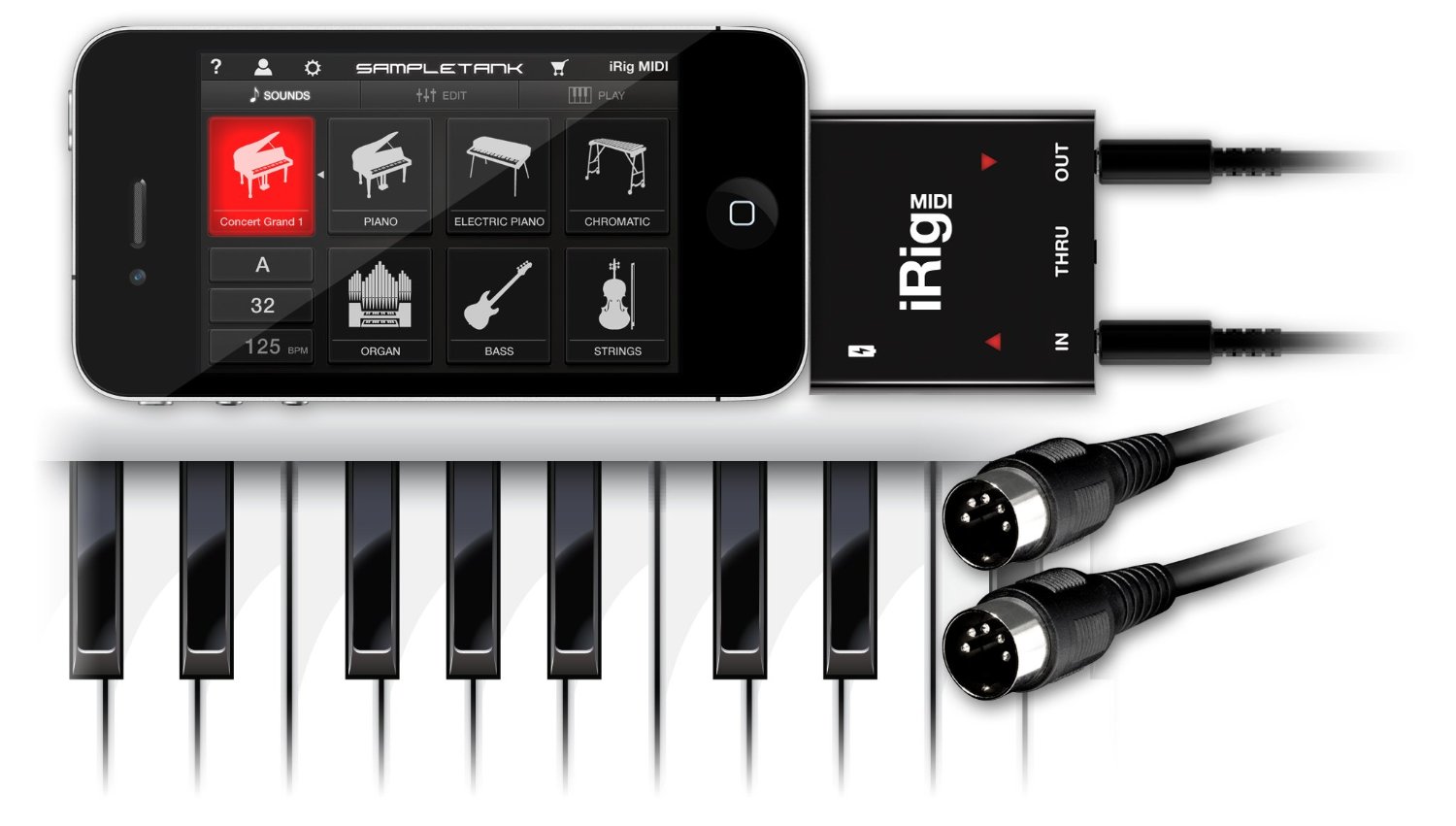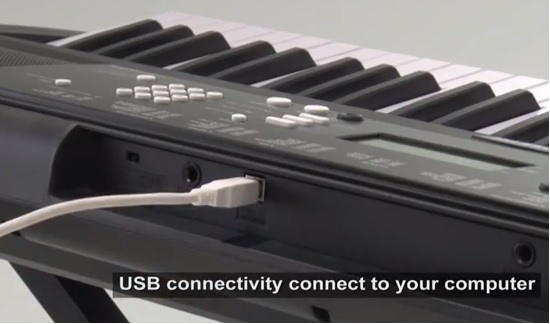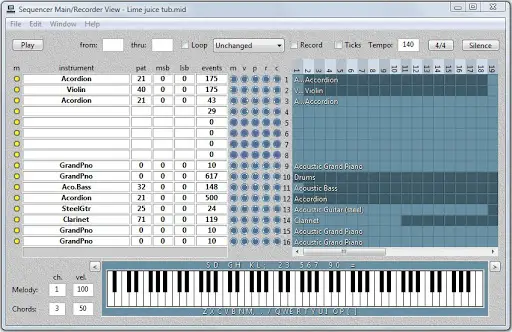
If you’ve just started piano lessons and have finally decided to get a piano of your own, it can be quite overwhelming. With so many options to choose from, you don’t know where to begin, what to consider and which is the best beginner keyboard for your situation.
Table of Contents
- What Are the Must-Have Features for a Beginner Piano Keyboard?
- How Many Keys Should a Keyboard for Beginners Have?
- What Specific Things Should I Keep in Mind when Buying for a Toddler/Child?
- What Kind of Piano Keyboard Should I Buy for a Beginner Adult?
- What Should I Look for in a Beginner 88-Key Keyboard?
- You’re Ready to Buy Your First Keyboard!
Lucky for you, we’ll take you step-by-step through the process!
What Are the Must-Have Features for a Beginner Piano Keyboard?
Before you head to the music store or start surfing the web, update yourself on the core features any basic keyboard piano should have:
The Number of Keys
Discussed in more detail in the next section, it is important to know the number of keys your keyboard has. Your decision should be based on how much space you have for your keyboard and the type of music you intend to play.
Action

Action refers to the response of your keys to the touch. Some of the different types of responses include:
- Weighted & semi-weighted action– These keyboards offer some resistance to help you develop your playing technique.
- Hammer action– These keyboards have mechanical hammers as part of their mechanism to enhance the keys’ response.
- Synth-action– There is no resistance and the keys respond instantly to the touch.
It is ideal to work with weight or semi-weighted keys if you aim to become an expert piano player.
Polyphony
This refers to the number of sounds you can play on the keyboard at once. Some keyboards may have polyphonic capabilities sufficient to let you play an entire orchestra on your own! However, beginners do not require that level of polyphony in their keyboard piano.
MIDI Compatibility

MIDI (Musical Instrument Digital Interface) are messages sent to an instrument to generate sound. Instruments with MIDI compatibility make it easy for you to change pitch, durations, etc. without having to rerecord what you were playing.
Computer Connectivity

Modern keyboard pianos can be connected to your computer via USB, MIDI, mLAN, etc. Some keyboards even offer iOS compatibility. These features allow you to access online practice sessions, world-renowned musical performances and recording apps.
Sequencer
A sequencer may be built in your keyboard or attached externally. It allows you to record your MID performance and provides the additional benefit of playing it back in sequence.
Sampler
A sampler is essential if you plan on combining your music with external audio clips. With a sampler, you can record your music, play it back and even alter it.
Controllers
Controls include pitch, modulation wheels, knobs and sliders (especially important if you’re working with MIDI), and so on. Some modern keyboards feature these controls in the form of a touch screen. Beginners may not require controllers unless they intend to go pro.
Price
Although price isn’t exactly a feature of the keyboard, it’s an important factor to consider if you’re a newbie. Some brand new keyboard pianos may be quite expensive and not worth the investment, especially if you are unsure about your piano-playing future. You can look for a secondhand keyboard, which you can get from a friend or a thrift store if you’re in luck. Make sure to carefully examine the used keyboard to avoid purchasing a faulty, useless instrument.
If you do intend to buy a brand new instrument, you can compromise on some of those additional features, such as the presence of a sampler, etc., or the number of keys. Once you advance to an intermediate or expert level, you can upgrade to a better instrument.
How Many Keys Should a Keyboard for Beginners Have?
A standard piano consists of 88 keys. It is ideal for beginners to start off on an 88 key piano so that they don’t have to deal with the transition from a smaller keyboard later on. That being said, smaller piano keyboards are easier to play on and are better suited for students who find the keys confusing to begin with.
Smaller instruments may have 66 or 72 keys. With a 66-key keyboard, beginners can play most of the music they’ll start out with. However, certain types of music, such as classical music, require an 88 key piano.
Some keyboards have less than 66 keys. Synthesizers (discussed ahead) or keyboards meant specifically for generating organ music electronically have fewer keys. Some synthesizers limit the number of keys to the specific type of music you plan on playing.
What is a Synthesizer?
Synthesizers are popular among beginners. They are electronic keyboards that are much smaller than regular keyboards but still have the ability to generate great levels of sound and mimic sound effects from other instruments. They are suitable for piano students who want to just learn the basics of piano playing. With synthesizers, you have the same benefit as a regular keyboard to record what you play.
However, it is important to remember that if you intend to play on a synthesizer, you need one from a reputable brand so that it actually has some semblance to an actual keyboard piano. Synthesizers also do not have weighted keys so for those progressing to the next level of piano playing, the transition is tougher and may take longer.
What Specific Things Should I Keep in Mind when Buying for a Toddler/Child?
Buying a piano for a child requires a little more consideration than getting one for an adult. You have to consider the:

Age
Children who are eight years old and above can play comfortably on a full-sized keyboard piano. However, for children under eight, smaller keyboards are better suited. And by smaller we mean much smaller- around 25-35 keys. At this age, the child’s hands are too small and the child will not have developed all the general motor skills required to play on a larger piano.
However, every child is different, and if you feel that your child is ready to play on a standard piano, you can get them started on one. If your 7-year-old starts with a 66-key piano, they’ll be able to learn complex notes much faster when they are older.
Other Features
Certain pianos have child-friendly features that make it easy for them to understand and learn what to play. These may include:
- A timing mode that provides alerts for the right timing to play each note.
- A waiting mode telling when to pause and for how long between the notes.
- iOS connectivity so that your child can connect with their favorite tunes and jingles and enjoy playing (as well as learn faster).
Weighted Keys
While pianos without weighted keys may seem easier to play at first (and also cheaper to buy), weighted pianos are considered to be better for training. They help children build finger strength and makes their transition to an advanced level of playing easier. If you start your child on a non-weighted keyboard, they will struggle to play weighted keys.
Quality
When your child develops a new interest or you want them to get involved in a new hobby, you never know how long it will last. One week they want to play the piano, the next week they want to play the violin. Many parents are a bit risk-averse and consider buying a cheaper piano or one with less features (such as fewer keys) just so that they don’t have to bear the cost later.
Ideally, your child should learn how to play on a weighted, 88-key keyboard. If you’re unsure about their interests, you can rent a piano or sign your child up for music lessons at a local studio. Once you’re sure, you can get them their own instrument. Compromising on the instrument quality can affect how your child will play the piano for the rest of their lives.
What Kind of Piano Keyboard Should I Buy for a Beginner Adult?
Unlike with children where you need to consider their age and hand size, adults should ideally start playing on an 88-key piano. If your budget is restricted and the only quality instrument that fits your budget is a 66-key piano, go for it. But just remember, if you want to learn how to play specific types of music such as classical, you’ll the need the full 88-key keyboard.
Weighted Keys
Unless you are just learning how to play the piano for your sister’s wedding, you’ll need to learn how to play on weighted keys. Although non-weighted keys are fine for those who just want to learn the basics of piano playing, for those wishing to progress to an intermediate level and have a real passion for playing, a weighted keyboard is the way to go.
Key Size
Some of the more portable keyboards may also be much smaller in size and much lower in price. However, they can be annoying to play and will make it difficult for you if you ever decide to transition to a full-sized piano keyboard. Although a small key size is fine for children, make sure you get the standard key size when you are buying a keyboard.
Touch Sensitivity
Touch sensitivity means that the harder you press the keys, the more sound they will produce and vice versa. Although beginners do not need to worry about this feature, it can improve the sound of your music. Keyboards with touch sensitivity tend to be more expensive, so if you can afford it or you are able to find one secondhand then go for it.
Type of Music
If you just want to rock out with your favorite neighborhood rock band or play some fun pop music, a 66-key keyboard will help you get the job done. If you are inspired by Mozart and Beethoven to play some of the classics, you’ll need an 88-key keyboard.
What Should I Look for in a Beginner 88-Key Keyboard?
Apart from the fact that it should have 88 keys, you need to look at:
- The weight of the keys- although it is easier to learn on non-weighted keys, the weighted ones are preferable since you’ll be able to learn complex types of music faster later on.
- The type of keyboard- whether you choose to start with a digital or acoustic piano is up to you. Check the features of both before making your final decision.
You’re Ready to Buy Your First Keyboard!
Now that we have covered all the basics, you are ready to go out and buy your first keyboard. Whether you are buying it online, from a physical store or from a friend, just remember to inspect the instrument for all the features you are looking for. Keep a checklist:
- The instrument should not be faulty or damaged
- The keyboard should have the right number of keys
- The keys should be weighted (or non-weighted as required)
You can even look for deals that offer bundles where you can get a keyboard with a stand and stool so that you’re not standing and playing at your kitchen counter.
Whichever keyboard you get, make sure to clean it out regularly with a soft cloth. Too much dust and dirt will damage your instrument or reduce its lifespan.







